#olympe de gouges
Text

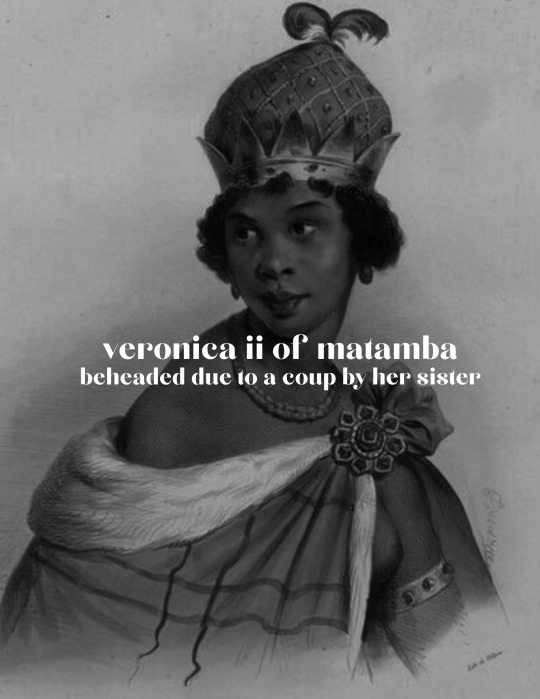
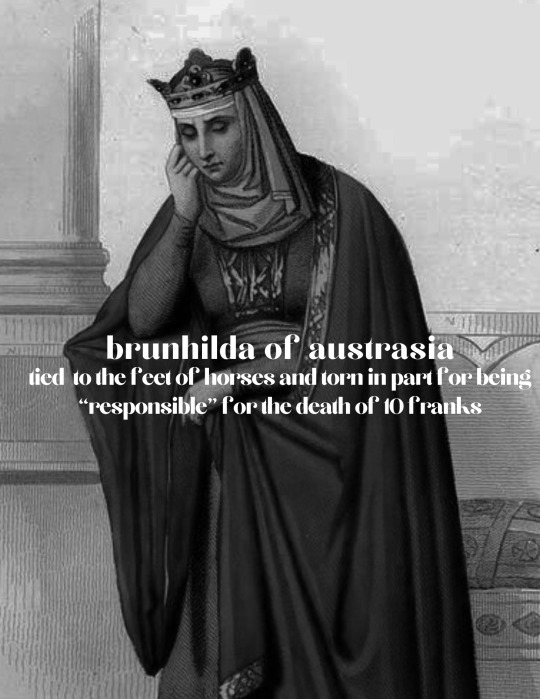
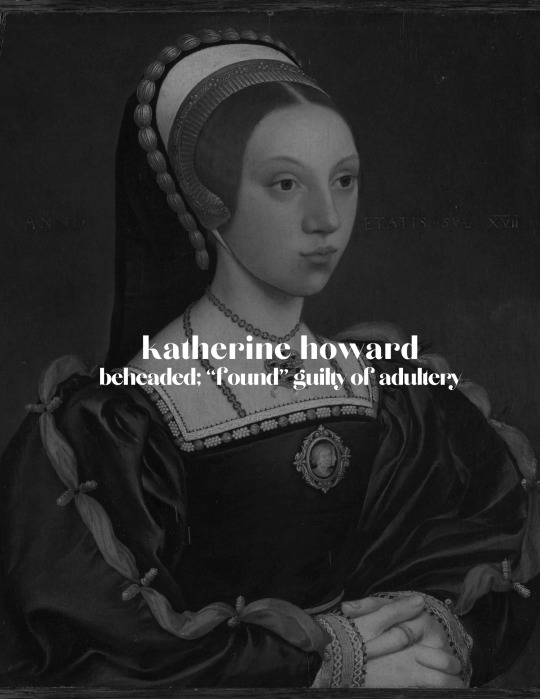
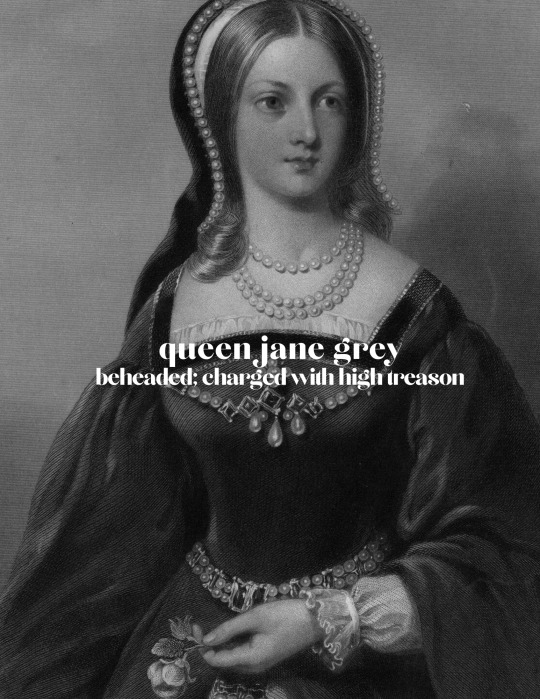
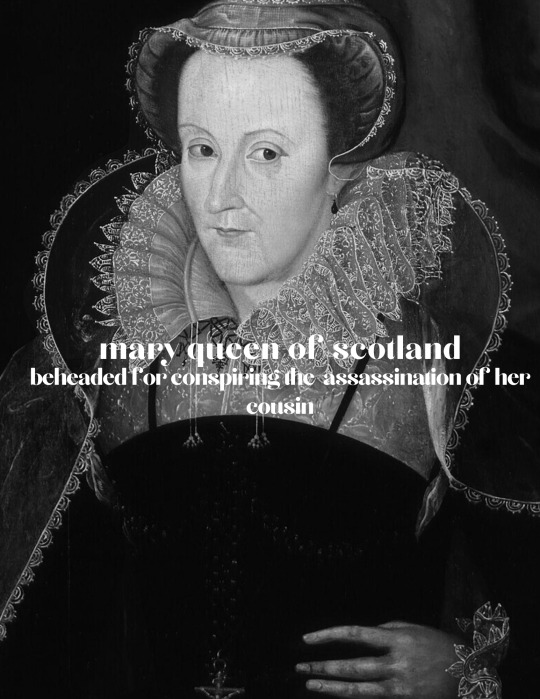
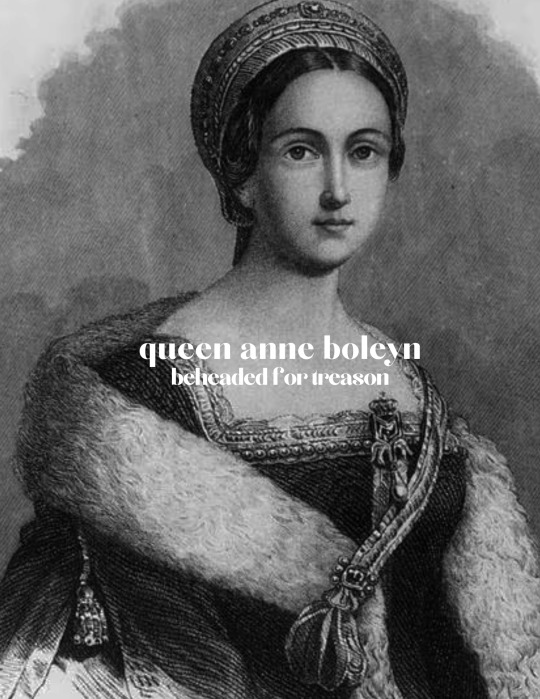





history + women who were executed
#some of them 10000% did not deserve exeution#history#jeanne d'arc#veronica ii of matamba#brunhilda of austrasia#katherine howard#queen jane grey#mary queen of scots#queen anne boleyn#maria of antioch#marie antoinette#bridget bishop#olympe de gouges#fannie efimovna
407 notes
·
View notes
Text
welcome to the french revolution. we've got catty bitch of a journalist who got executed for being a catty bitch, even cattier bitch journalist who somehow didn't get executed but wrote from his bathtub, big loud guy who cheats on his wife and cheats in his financial reports, fancy dressed lawyer who takes his dog on two hour walks, broke 26 year old goth genius, a few women who burn down buildings and kill shopkeepers, another woman who suicide baited the dog walking lawyer, failed playwright who commits white collar crime, hot bisexual with an orgy cave, another journalist whose paper is primarily expletives, two guys who blew up civilians for no good reason, guy who brings a knife to the government to threaten his fellow officials, guy who thought he got paralyzed from having too much sex, asshole mathematician whose grandson became president of france, and a guy everyone calls bonbon.
#in order:#desmoulins#marat#danton#robespierre#saint just#the srrc#olympe de gouges#fabre#herault#hebert#fouche and collot#tallien#couthon#carnot#augustin#french revolution#frev#shitpost#pigeon.txt
352 notes
·
View notes
Text
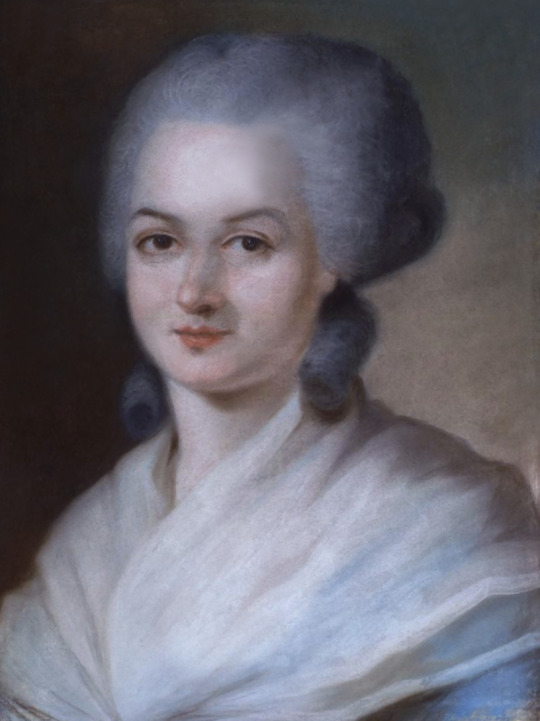
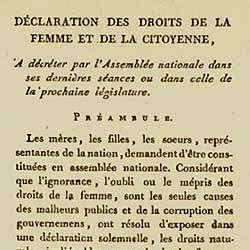
Olympe de Gouges (7 May 1748 – 3 November 1793) was a French playwright and political activist. She is best known for her Declaration of the Rights of Woman and of the Female Citizen.
This declaration was a response to Declaration of the Rights of Man and of the Citizen, which granted freedom and rights to men only, excluding women. She's the first person in history who openly demanded voting rights for women. Her views were seen as controversial and led to her eventual arrest and execution by guillotine in 1793.
Olympe is one of many female martyrs who sacrificed their lives fighting for women's rights.
Don't let us forget about this great heroine on the anniversary of her death.
#radfem#radical feminism#radfem safe#radblr#radfems do interact#feminism#radfems do touch#women's rights#women's liberation#Olympe de Gouges#french revolution#Declaration of the Rights of Woman and of the Female Citizen#Declaration of the Rights of Man and of the Citizen#voting rights#democracy#france#french#french history#women in history#feminist#herstory#heroine#Déclaration des droits de la femme et de la citoyenne#reign of terror#revolution of 1789#Révolution française#guillotine#mine
103 notes
·
View notes
Text
Okay I have a theory that lock screens and laptop stickers are the new true windows to the soul.
Feel free to reblog with your current lock screen and/or laptop stickers!
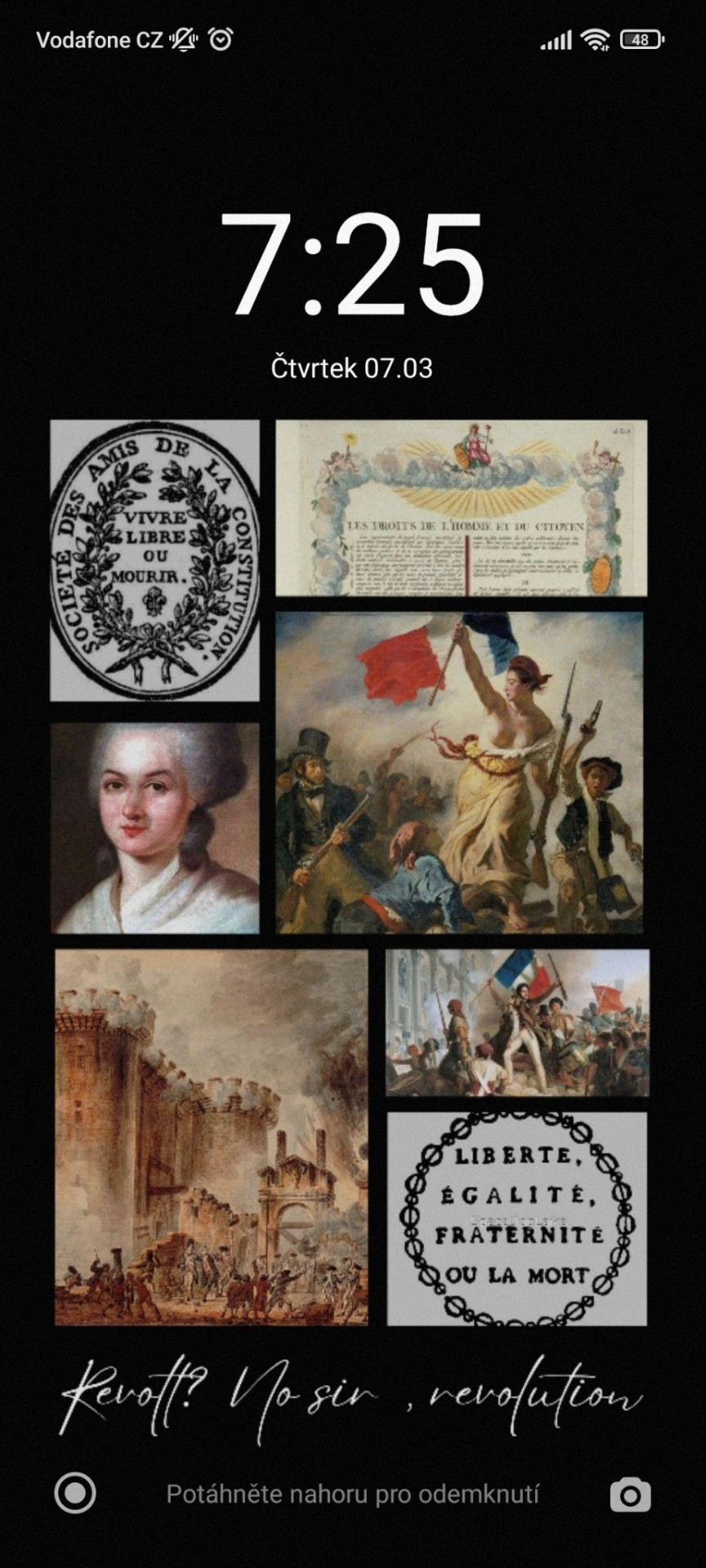

(doing this because I a) kind of want to flex b) am really curious to see others')
#tag game#reblog game#ask game#french revolution#classics#frev#daria#lockscreens#litearture#ao3#stickers#olympe de gouges#Athena#medusa#yes I know the painting is the 1830s revolution I just like how it looks okay#frev community#aesthetics#history
34 notes
·
View notes
Note
Long while back, you answer a question about inspiration for Madame Defarge in the novel "A Tale of Two Cities" and I guess it just stuck in my mind since I was just reading about political cartoonist of the day savaging of Theroigne de Mericourt and Olympe de Gouges and these cartoons may have helped Charles Dickens in his creation of the vengeful tricoteuse Madame Defarge (Thérèse from Theroigne and Defarge from de Gouges), but didn't much more about them?
I'm guessing you're talking about this post.
Theroigne de Mericourt was a leading French revolutionary, who was heavily involved in forming mixed-gender and women's political clubs. She became quite famous when she was arrested by the Austrians and rather violently interrogated as a supposed instigator of the Women's March on Versailles. She returned to France a revolutionary martyr, spent some time trying to recruit women's revolutionary battalions, and then was involved in the Insurrection of August 10th, where republican forces stormed the Tuileries Palace and forced the abolition of the monarchy.
While initially quite close to the Jacobins, Théroigne allied with the Girondins and was assaulted by pro-Jacobin women, requiring Marat's rescue. However, the head injuries she suffered during the attack led to increasing mental issues, and she was institutionalized from 1794 until her death in 1817.

I do find it interesting that, if Dickins did base Defarge on Théroigne, he left out the major (and visually dramatic) aspect of her public persona - her habit of wearing men's clothes, which was a constant theme of both her negative and positive press. (Lots of classical references to Amazons.)
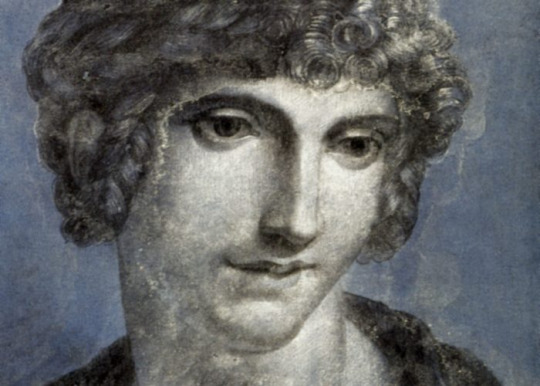
If Théroigne was the street-fighter and orator, De Gouges was the intellectual. A voluminous playwright and pamphleteer and a constant fixture of the leading salons of Paris, De Gouges was probably best known for her "Declaration of the Rights of Women and the Female Citizen" - which criticized the misogyny and patriarchy of male revolutionaries and called for equal rights for women.
Like Théroigne, De Gouges was a leading member of the Amis de la Verité, the most prominent women's political club in Paris. In addition to her advocacy for women's equality, De Gouges was a leading abolitionist and was accused of having incited the Haitian Revolution with her anti-slavery plays, which is just wild.
However, De Gouges lost a lot of political capital for opposing the execution of the King and preferring constitutional monarchy to repiblicanism. Like Théroigne, De Gouges backed the Girondins and criticized the Montagnards in the press - which led her to being arrested as a royalist, put on trial for sedition and monarchism, and ultimately executed by order of the Revolutionary Tribunal.
I don't think De Gouges is a good fit for Defarge - not only was she firmly bourgeois rather than sans-culotte, and the furthest thing from a Jacobin radical, but there's not a trace of De Gouges' literary and theatrical background in Defarge.
So yeah, if these women were the basis for Dickens' Defarge, he didn't do a very good job of highlighting the things that made them famous in the first place.
#history#historical analysis#french revolution#theroigne de mericourt#olympe de gouges#charles dickens#a tale of two cities#madame defarge#french history
24 notes
·
View notes
Text
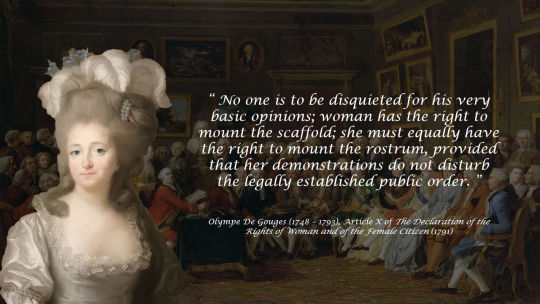
Olympe de Gouges (7 May 1748 – 3 November 1793)
Olympe de Gouges was a French playwright and political activist. She is best known for her Declaration of the Rights of Woman and of the Female Citizen and other writings on women's rights and abolitionism.
Born in southwestern France, de Gouges began her prolific career as a playwright in Paris in the 1780s. A passionate advocate of human rights, she was one of France's earliest public opponents of slavery.
Her plays and pamphlets spanned a wide variety of issues including divorce and marriage, children's rights, unemployment and social security. In addition to her being a playwright and political activist, she was also a small time actress prior to the Revolution.
Olympe De Gouges welcomed the outbreak of the French Revolution but soon became disenchanted when equal rights were not extended to women.
In 1791, in response to the 1789 Declaration of the Rights of Man and of the Citizen, de Gouges published her Declaration of the Rights of Woman and of the Female Citizen, in which she challenged the practice of male authority and advocated for equal rights for women.
Ms. De Gouges was associated with the moderate Girondins and opposed the execution of Louis XVI. Her increasingly vehement writings, which attacked Maximilien Robespierre's radical Montagnards and the Revolutionary government during the Reign of Terror, led to her eventual arrest and execution by guillotine in 1793.
#human rights#equal rights#humanity#freedom#women's rights#olympe de gouges#revolution#activism#french revolution#girondins#pamphlet#slavery#women's day#social rights#social justice
11 notes
·
View notes
Note
Really do feel like I’m taking advantage of your generosity lately but I’m writing a novel so that’s my excuse.
Lucile goes on a number of quite feminist rants in her diaries , so I’ve been wondering if we know anything about her official views in that area (and Camille’s, as well.) Would the Desmoulins have known/been friendly with people like Olympe de Gouges and Sophie Condorcet? I’m aware both were Girondins so presumably not to the bitter end, but what about earlier in the revolution? I’ve noticed Lucile actually mentions an Olympe in her diary - is this de Gouges…?
I too reacted on Lucile’s rather modern views — both when it came to gender equality and religious questions — so it’s fun to hear I wasn’t alone there.
If the Olympe she mentions once in the diary is Olympe de Gouges was actually something Philippe Lejeune speculated on when first publishing it in 1995, bringing up how the two at the time actually lived in the same area. He does however underline that there exists no real evidence tying the two together and ends by concluding he thinks it more likely Lucile is talking about a person in her own age and not de Gouges.


Lejeune’s words seem rather well confirmed by other pieces I’ve looked at — I can’t find Camille referring to de Gouges in any of his works, nor does the biography Marie-Olympe de Gouges: une humaniste à la fin du XVIIIe siècle (2003) by Oliver Blanc cite anything hinting at a relationship between her and the couple. The same thing for Condorcet — nowhere could I find Camille talk about him in a way that implies they were/had once been friends (and it goes without saying it was the same thing for his wife). I actually had trouble finding proof of a relationship between Sophie/Olympe and any other prominent revolutionary.
Someone we however do know Lucile was friends with is Louise de Kéralio-Robert, who, judging from the amount of times mentioned in the diary she kept 1792-1793, comes off as one of her closest friends along with madame Danton and madame Brune. De Kéralio has been accepted as the first and even only 18th century woman to found and edit a political journal. In said journal, she, like Camille, showed herself an early and fervent republican. She was however far from a feminist, in 1789 we find the following letter from her:
Mademoiselle de Keralio is very satisfied by what [Monsieur Brissot de Warville] said today about the influence of women. It is very much part of Mlle de Keralio’s principles that women should not make a great spectacle of themselves. […] A love of publicity is bad for modesty, from the loss of that comes a distaste for domestic work, and from idleness, principles are forgotten and from lack of morals arise all of public disorders. We should be forced to seek women inside their homes, their presence should be hard to obtain, and rare, offered as a favour.
And one year later we have this passage from her journal:
I do not believe that women can ever have any active part in government, and I believe that the greatest good that the constitution can do to public morals is to keep them out of it forever. Women reign in despotic states, it is enough to say that they must be null in the administration of a free country. The more the austerity of republican mores will make them attentive inside their homes, the more it will render them incapable of knowing enough public men to direct a choice which must be the fruit of constant observation and consummate experience. I know in them the sagacity necessary to judge the best of things, but not the extent of genius which makes known the means of arriving there or the force of temperament which supports the necessary studies. I repeat it again, the more they will be what nature has made them, the less they will want to undertake something beyond their physical and moral strength. Content to teach their children the decrees of the assembly, they will aspire neither to make nor dictate them.
This in response to a footnote inserted in the pampleth Le franc en vedette (1790) by Armand Joseph Guffroy (who, sidenote, was the man Charlotte Robespierre is proven to have had some interesting political connections to and was helped out by after thermidor. While there’s no way of knowing what Charlotte’s own stance on the topic was, it’s nevertheless interesting that the guy she was arguably closer to politically compared to her brothers also fought more openly for her political rights than they are ever confirmed to have done…)
I had proposed to admit women to the primary assemblies, to deliberate on the choice of municipalities, and I still believe that my two separate ballots and my posted ballots would disturb all the conspiracies. If one is wise, one will come back to it; and I predict that we will never have a public spirit, public morals, if women do not participate in the administration as I have proposed. The National Assembly admitted to swearing the constitution, those who were in the tribune on the 4th of this month. Why would we separate them from the public sake? The queen promised to raise her son in the principles of constitutional liberty; all French mothers must publicly swear this civic oath: without that, I repeat, no morals, no morals, no fatherland. Frenchmen, prove that you are men, by giving back to your wives all their dignity; French women, prove that you are worthy of giving birth to a race of free men.
Now, there’s of course no way to know if de Kéralio influenced Lucile’s own view on the matter (it’s a bit unfortunate that the diary she kept during the revolution doesn’t contain any of the poltical/philosophical reflections the one from 1788 has), but I think it can be concluded that, among the people she is proven to have had any close contact with, those who’s political opinions can be traced were more anti-feminist than the opposite. Sidenote again, but the feminist stuff contained in the diary of 1788 Lucile wrote while simultaneously hanging out with Sylvain Maréchal, a guy who in 1801 would suggest forbidding women from learning how to read.
As for what Camille’s view on the subject was, searching for the term ”femme” in Révolutions de France et de Brabant, I would say he comes off as neither a feminist (in the sense that he wants women to be equal to men) nor a misogynist. The most feminist moment from his side I’ve found so far is when he in number 14 he praises Théroigne de Méricourt and transcribes one of her speeches. The speech does on one hand not have anything to do with women’s right, but after transscribing it Camille nevertheless writes:
On the request of Mademoiselle Theroigne to be admitted to the district with a vote of consent, the assembly followed the conclusions of the president, who gives thanks to this excellent citoyenne for her motion; that a canon of the Council of Mâcon having formally recognized that women have a soul and reason like men, they can not be forbidden to make such good use of them as the preopinante; that he will always make Mademoiselle Théroigne, and all those of her sex, free to propose what they believe to be advantageous to the fatherland.
Edit: Camille speaks in favor of married women’s right to administration of property in 1793.
What’s your novel about, anyway? If you want to tell.
#lucile desmoulins#camille desmoulins#louise de kéralio#olympe de gouges#armand joseph guffroy#a man proposing women should get more political rights and a (politically active) woman opposing it…#that’s not something you get to read about everyday#ask#frev
28 notes
·
View notes
Text
Why am I not surprised radfems on this website are spreading complete misinformation about Olympe de Gouges, 'reducing' her to her feminist engagements only and portraying her as a sole victim of patriarchy and not as an active political individual who fought on all fronts, and was tried because of her vehement attacks on the majority party and royalist beliefs.
She re-imagined the intersection of gender and political engagement not for you to portray her only as the victim of patriarchal gender relations and not as a far-reaching political opponent in her own right.
#olympe de gouges#frev#Why can't we discuss feminism and sexism in late 18th century without falling into this sterile pit#Same with Charlotte Corday and Marie-Antoinette#Made victims by virtue of their sex#No matter what they stood for
15 notes
·
View notes
Text

From left to right: Marie-Anne Pierrette Paulze, Élisabeth Vigée Le Brun, Germaine de Staël, Madame Marie-Jeanne 'Manon' Roland de la Platière, Marie-Anne Charlotte de Corday d'Armont, Olympe de Gouges
In 2022 opera on the women of the French revolution premiered! It is called GIRONDINES! It's an English language opera that premiered with Wilmington Concert Opera and will be having its West Coast premier with Mission Opera!

Album image for the original concert cast album
According to an February 2023 article by Broadway World: "The Original Wilmington Concert Opera Cast Album is now available! It features Kirsten C. Kunkle as Charlotte Corday, Ashley Becker as Olympe de Gouges, Marisa Robinson as Marie Anne Pierrette Paulze Lavoisier, Alyssa Maria Lehman as Manon Roland, Raffaella Lo Castro as Germaine de Staël, Tracy Sturgis as Élisabeth Louise Vigée Le Brun, Thuy Nguyen on Violin, Melissa Brun on Cello, and Sarah Van Sciver on Piano."
I have not yet listened but as someone into frev and opera I am very excited. It also looks like the original concert production may be available to watch on YouTube!

Promo image for the October production
So far it looks like these have been small scale productions, but everything starts somewhere! I need to listen to the music but I wish good things to come
#opera#frev#french revolution#history#Marie-Anne Pierrette Paulze#Countess vom Rumford#Élisabeth Vigée Le Brun#Le Brun#Germaine de Staël#Madame de Staël#de Staël#Marie-Jeanne 'Manon' Roland de la Platière#Madame Roland#Marie-Anne Charlotte de Corday d'Armont#Charlotte Corday#Olympe de Gouges#womens history#herstory#new opera#new theatre#theatre#undescribed#please if anyone has the ability to add image ids for this id appreciate it
9 notes
·
View notes
Text
[Olympe de Gouges] was a Parisian playwright and pamphleteer, an uneducated one who held women’s education dear, and she was very well known. She founded women's clubs and tried to break down the exclusion of women from politics through discussion in these clubs and through her own writing and pamphleteering. As a woman, however, in line with the traditional classification and division of women, and politics, her interests have not often been perceived as political. ‘She was indefatigable in composing appeals for good causes; the abolition of the slave trade, the setting up of public workshops for the unemployed, a national theatre for women’ (Tomalin, 1977, p. 200). What does a woman have to do to be seen as political?
In ‘Nine hundred and Ninety Nine Women of Achievement’ (Chicago, 1979) it is said of Olympe de Gouges that: ‘She demanded equal rights for women before the law, and in all aspects of public and private life. Realizing that the Revolutionaries were enemies of the emancipation of women, she covered the walls of Paris with bulletins - signed with her name - expounding her ideas and exposing the injustices of the new government.’ She was sentenced to death by Robespierre, and guillotined, but not before she to demanded to know of the women in the crowd, ‘What are the advantages you have derived from the Revolution? Slights and contempt more plainly displayed’ (p. 177).
Evidently, she was quite troublesome. In 1791, in response to the Declaration of the Rights of Man, she produce her own Declaration of the Rights of Women (a strategy closely paralleled by Wollstonecraft's work and later by the women at the first Woman's Rights convention in Seneca Falls, 1848) and, 'Taking the seventeen articles of the Declaration des Droits de l'Homme and replacing whenever she found it the word man by woman, she demanded that women should have the same political and social rights as men' (Nixon, 1971, p. 81). It was also one of her convictions that marriage had failed as a social institution and should be replaced by a more just and appropriate arrangement.
-Dale Spender, Women of Ideas and What Men Have Done to Them
17 notes
·
View notes
Text
Excerpt from Thierry Lentz on Napoleon and Women:

There is a widely held idea that the Consulate and the Empire put an end to the Revolutionary episode of the gradual accession of women to, if not equality with men, at least to a more equable place in society. This episode is often symbolised by the struggles of emblematic figures, such as the famous Manon Roland, Théroigne de Méricourt and Olympe de Gouges, the lesser-known Pauline Léon and Claire Lacombe, and even the more surprising Charlotte Corday and Marie-Antoinette. After the women’s march on Versailles on 5 and 6 October 1789, “women citizens” – who were in fact not legally citizens – took part in other “great Revolutionary days”, created clubs, published pamphlets and, more generally, demanded or petitioned for what was still far from being called “parity” or “gender equality”. Limited in numbers, this movement was nipped in the bud by the Convention, which repressed the leaders (several of the aforementioned heroines were guillotined), closed the women’s clubs, even postponed plans to develop education for girls and reversed the weak legislative advances that had been conceded. The first discussions on codification which began at this time confirmed this opposition, despite the maintenance of partial equality between spouses (particularly in matters of divorce) and the reduction, also very relative, of the scope of exclusions from professional life (which were not completely abolished until 1965). Social consensus, essentially created by men who alone had access to education, to the means of communication and to power, was then contrary to any idea of legal and political equality (that equality would not come until the 1970s!!). Any challenges on this point were stifled using an arsenal of different justifications, drawing on science, physiology, history, religious precepts, etc.
(Source)
#interesting#Manon Roland#Théroigne de Méricourt#Olympe de Gouges#Pauline Léon#Claire Lacombe#Charlotte Corday#Marie-Antoinette#Napoleon#Thierry Lentz#napoleon bonaparte#Bonaparte#women’s history#women#history#napoleonic era#napoleonic#convention#women’s March on Versailles#france#text post#1800s#1700s#1790s#19th century
17 notes
·
View notes
Photo
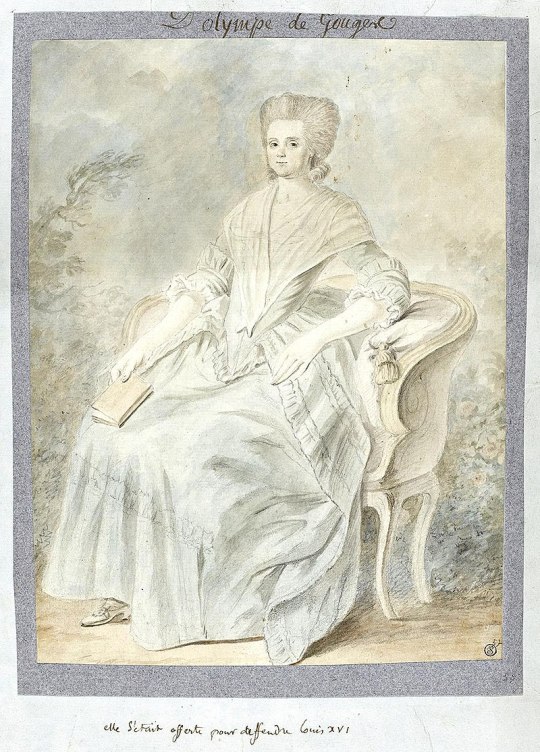
Olympe de Gouges (7 May 1748 – 3 November 1793) was a French playwright and political activist whose writings on women's rights and abolitionism reached a large audience in various countries. She began her career as a playwright in the early 1780s. As political tension rose in France, Olympe de Gouges became increasingly politically engaged. She became an outspoken advocate against the slave trade in the French colonies in 1788. At the same time, she began writing political pamphlets. In her Declaration of the Rights of Woman and of the Female Citizen (1791), she challenged the practice of male authority and the notion of male-female inequality. She was executed by guillotine during the Reign of Terror (1793–1794) for attacking the regime of the Revolutionary government and for her association with the Girondists.
#Olympe de Gouges#women in history#women in activism#XVIII century#Illustration#art#arte#women rights#women for women
16 notes
·
View notes
Text
no children by the mountain goats is an objectively good and interesting song but UNFORTUNATELY I cannot hear the lines "I am drowning / there is no sign of land / you are coming down with me / hand in unlovable hand" without thinking of olympe de gouges and that fucking. letter she wrote to robespierre once
#her anon hate mail game would've been insane#rip de gouges you'd have loved sui baiting in ppls askboxes#the mountain goats#frev#french revolution#pigeon.txt#shitpost#olympe de gouges
31 notes
·
View notes
Text
“She doesn't stop there, Olympe De Gouges also introduces a concept most of us would associate with modern-day pre-nuptial agreements. In her eyes, marriage as an institution was unfavourable for women. The only way for women to ensure their protection and financial well-being post-marriage was to enter into a contract beforehand. So she essentially proposed an alternative social contract a la Rousseau, between man and woman to replace the existing marriage contract. In many ways, her ideas were too revolutionary, even for the revolution itself.”
Read the rest here: https://open.substack.com/pub/ananyajagoorie/p/you-made-a-declaration-and-forgot?r=7dcr2&utm_campaign=post&utm_medium=web
#olympe de gouges#french revolution#French history#history#women in history#history facts#facts#substack#declaration of the rights of women
3 notes
·
View notes
Text
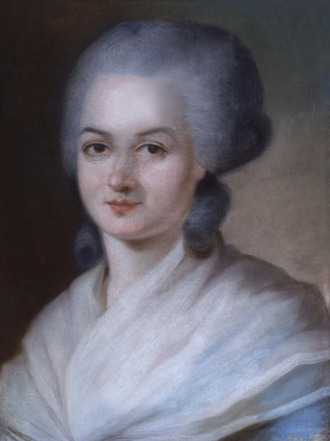

Happy Birthday to Olympe de Gouges and Johannes Brahms!
3 notes
·
View notes
Note
Wasn't Olympe de Gouges (a.k.a. Fury) also the founder of the apocryphal Club of Knitting Women?
I don't think so. Olympe de Gouges opposed capital punishment and the Terror, and was far too busy writing plays, pamphlets, and newspaper articles and doing actual politics in the Société des Amis de la Verité, also known as the Cercle Social, to spend her time watching executions.
10 notes
·
View notes